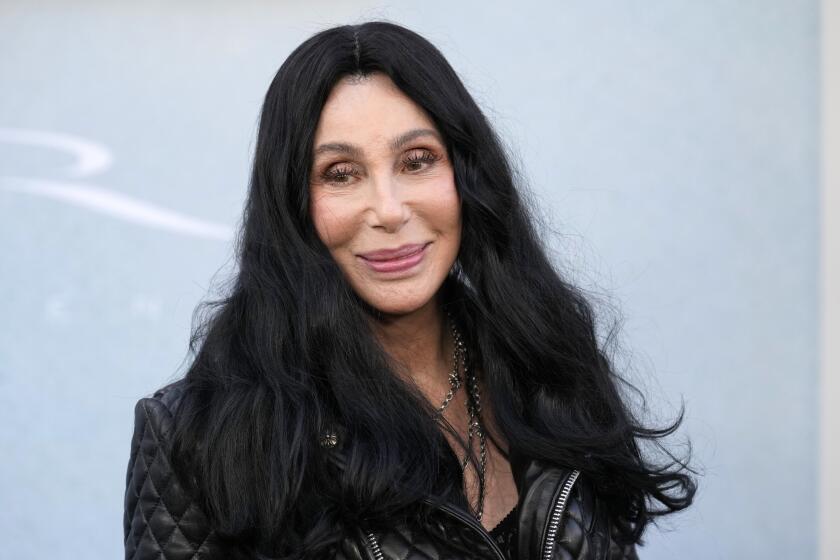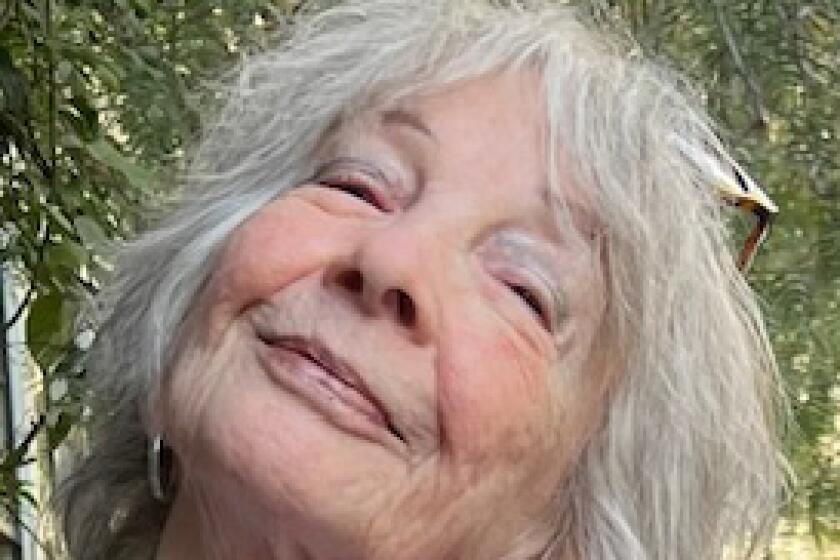John Edgar Wideman takes a hand in publishing
John Edgar Wideman is the kind of writer who can do whatever he likes. Best known for his 1984 memoir “Brothers and Keepers” and his fiction cycle “The Homewood Trilogy,” he’s won two PEN/Faulkner awards, been a National Book Award finalist and received a MacArthur “genius” grant.
He has a tenured appointment at an Ivy League university. His agent, Andrew Wylie, is one of the most powerful in the business.
So why is Wideman self-publishing his latest book, “Briefs: Stories for the Palm of the Mind”?
“Why not?” Wideman asks with a quiet smile on a Sunday afternoon in Santa Monica. In town for a staged reading from “Briefs,” Wideman sits by the window in an ad hoc greenroom as actors from “The Wire” and “Do the Right Thing” warm up nearby.
For this new book, Wideman has entered into an agreement with Lulu, the largest self-publisher in the business. In addition to “Briefs,” a collection of short shorts, or microfictions, his first three novels are also being reissued through Lulu.
A few well-known writers, including Paulo Coelho, have already published with Lulu, but Wideman is the first to sign on as part of the new Lulu VIP Author program.
It’s quite a move. Although self-publishing has been around for as long as books have been made, it has generally remained on the fringes, in part because it inverts the classic business model: Instead of getting money for their work, authors pay to publish their books.
Because of this, self-publishing tends to be seen as the final recourse for those whose work isn’t good enough for a regular publisher. But with the industry in flux, self-publishing may be losing its stigma.
A rush of stories
Wideman is a perfect case in point, for “Briefs” is no book of last resort. Featuring 100 stories, which range in length from a few pages to a single paragraph, the collection is a mix of memories, reflections and narrative. Its opening story, “Witness,” appeared in O, the Oprah Magazine.
“Stories, in a way, are about time,” Wideman says. Now 68, he holds up his hands to indicate how much of his time has passed -- and the smaller span that lies ahead. “What’s that mean?” he asks. “I’ve lost the best of what I have? Or is there something that I can look forward to in another scale, as life crystalizes?”
Following in the footsteps of Richard Wright, who began to write haiku near the end of his life, and taking inspiration from Yasunari Kawabata’s “Palm-of-the-Hand Stories,” Wideman is miniaturizing. He’s taking “the same ambitions” he’s always had and writing them into drastically smaller works.
As much as these stories grow out of Wideman’s current circumstances, they’re also built to connect with busy, distracted readers. “In the pace and rhythm of life we have around us today,” he says, “it’s a struggle to get a private minute. For me, the private minute is what it’s all about. It’s what a powerful culture like ours tends to crush.”
And yet, for all that Wideman wants readers to find focus in his micro-stories, his main concern ultimately is that of a writer trying to take control of his own work. “Most people write,” he notes, “because they want independence. And that independence is threatened when you have to kowtow to the means of production.”
A squeeze
For Wideman, innovative writing has been squeezed out by the blockbuster trend in publishing. Celebrities and politicians get huge advances from publishers who hope to cash in on gossip and scandal with big returns.
“The publishers weren’t the bad guys,” he says. “It was just the kind of nature of things. But I felt frustrated by that.”
What’s interesting about this is that Wideman is an author with access, as his awards and publishing record attest. “I think I’ve done quite well, frankly,” he acknowledges, for “a poor boy from Pittsburgh.”
Pittsburgh has always played a significant role in Wideman’s writing, especially his upbringing in Homewood, a chronically depressed part of the city. In “Brothers and Keepers,” he traces the psychic toll of poverty on his family, contrasting his own experience -- he attended the University of Pennsylvania on a basketball scholarship -- with that of his younger brother Robby, who was drawn, inextricably, to criminal activity.
To some extent, he suggests, this has even played a part in his decision to self-publish. “Where I come from, nobody can afford to buy books,” he says. “I’ve always been frustrated by questions of audience.”
With Lulu, Wideman hopes he can do a better job of reaching readers. Self-publishing means that he can control what happens to the pieces in his book. If he wants to put them in subway cars or serialize them in a magazine or pass them out in schools, he can.
What he’s giving up
Yet while he’ll have some help with this from Lulu -- in addition to his VIP author status, his son Daniel works there -- going independent means giving up the infrastructure that a traditional publisher provides.
There is, at the largest level, the issue of availability. Publishers have agreements with retailers; Lulu doesn’t have the same clout.
In theory, books published by Lulu are available on Amazon.com, but “Briefs” has not shown up yet. A Lulu representative declined to comment on whether Lulu books will be available through Apple’s upcoming iBookstore, designed to launch with its iPad on Saturday.
That’s the trade-off between a traditional publisher and self-publishing with a company like Lulu: independence for service. Wideman can take his book where he likes, but it may fall to him to do it. Who else will get his stories out to readers, traditional or otherwise?
“The idea of talking individually to readers is quite appealing,” he says. “But I’m not going to become a huckster, either.”
carolyn.kellogg@ latimes.com
More to Read
Sign up for our Book Club newsletter
Get the latest news, events and more from the Los Angeles Times Book Club, and help us get L.A. reading and talking.
You may occasionally receive promotional content from the Los Angeles Times.







